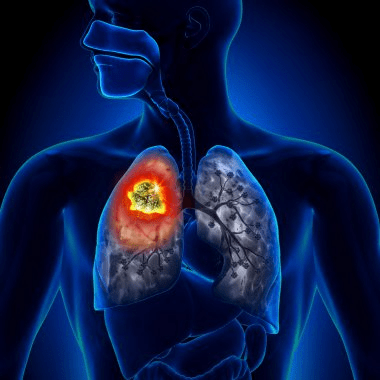Lung cancer remains a global health crisis, affecting millions each year. In India, it stands as one of the leading causes of cancer-related deaths. Imagine facing such a diagnosis at a time when most focus on building careers, starting families, and shaping their futures. A diagnosis of lung cancer at 30, a pivotal stage in life, is not only daunting but life-altering. But there’s hope!
MACS Clinic, a trusted facility for cancer treatment in Bangalore, has brought new hope to countless patients. Founded by Dr. Sandeep Nayak, this center was born out of a vision to provide minimal access cancer surgeries, offering patients the best possible outcomes with less invasive procedures.
Understanding Lung Cancer
Lung cancer is a critical health concern that requires prompt diagnosis and treatment. It originates in the lungs, where abnormal cells multiply uncontrollably to form a malignant tumor. These tumors typically begin in the cells lining the bronchi, bronchioles, or alveoli and can disrupt normal lung function. It is one of the most aggressive forms of cancer, often developing rapidly and having the potential to invade nearby tissues or spread to distant parts of the body if not detected early.
Symptoms and Causes of Lung Cancer in Young Adults

- Persistent cough that worsens over time
- Blood in sputum
- Shortness of breath
- Chest pain or discomfort
- Unexplained weight loss
- Appetite loss
- Fatigue
- Frequent respiratory infections
Causes and Risk Factors of Lung Cancer
Several factors contribute to lung cancer, even in young adults. These include:
Smoking/ Smoke Exposure:
Inhaling smoke is the leading cause of lung cancer, with tobacco smoke containing carcinogens that damage lung tissue.
Radon Gas:
A naturally occurring radioactive gas that can accumulate in homes and increase cancer risk.
Asbestos Exposure:
Contact with asbestos, particularly in occupational settings, is a known risk factor, especially for smokers.
Carcinogenic Chemicals:
Exposure to certain industrial chemicals, such as arsenic and diesel exhaust, raises the risk of lung cancer.
Genetic Mutations:
Inherited genetic mutations can predispose individuals to lung cancer, although this is less common.
Family History:
Having a close relative with lung cancer can increase personal risk.
Age:
The risk of lung cancer increases with age, particularly after 65.
Previous Lung Diseases:
Conditions like chronic obstructive pulmonary disease (COPD) or pulmonary fibrosis can elevate risk.
Environmental Pollution:
Long-term exposure to high levels of air pollution can contribute to the risk of lung cancer.
Young adults must be aware that smoking isn’t the only risk factor. Environmental exposures and genetic predispositions play a significant role, too.
Treatment Options for Lung Cancer
Treating lung cancer requires a multi-faceted approach, combining various therapies to maximize effectiveness. Here are the primary treatment options:
Surgery:
Involves removing the cancerous tissue from the lung along with a portion of surrounding healthy tissue. The types of surgery for lung cancer include:
- Wedge Resection: The removal of a small lung segment containing the cancerous growth along with minimal surrounding healthy tissue.
- Segmental Resection: Removing a larger portion of the lung, but not the entire lobe.
- Lobectomy: This surgery entails the removal of an entire lobe from one lung.
- Pneumonectomy: This operation involves the complete removal of one lung.
Radiation Therapy:
Uses high-energy rays to target and destroy cancer cells. It is often the first approach when surgery is not an option.
Chemotherapy:
Employs drugs to kill cancer cells throughout the body. Doctors often combine it with other treatments to enhance effectiveness.
Targeted Therapy:
Focuses on specific molecules involved in cancer growth, providing a more personalized treatment approach.
Immunotherapy:
Boosts the body’s immune system to recognize and fight cancer cells more effectively.
Each treatment has its own set of benefits and considerations. The choice of treatment depends on the cancer’s stage, the patient’s overall health, and other individual factors.
Conclusion
A lung cancer diagnosis, especially at a young age, can be overwhelming. However, with advanced surgical techniques available today, patients have a fighting chance against this formidable disease. Medical professionals are committed to offering the latest and most effective treatments to help patients in their battle against cancer.
While the battle against lung cancer is undeniably challenging, it’s important to remember that with proper care and support, there is always hope. The progress in cancer treatment is promising; every day, more patients are winning their fight against this disease.


